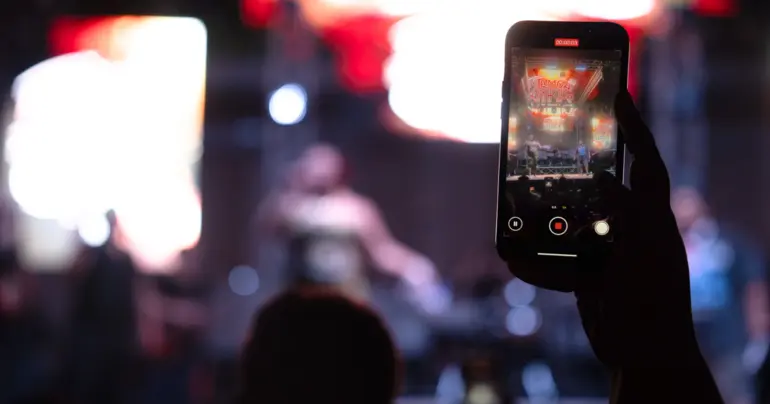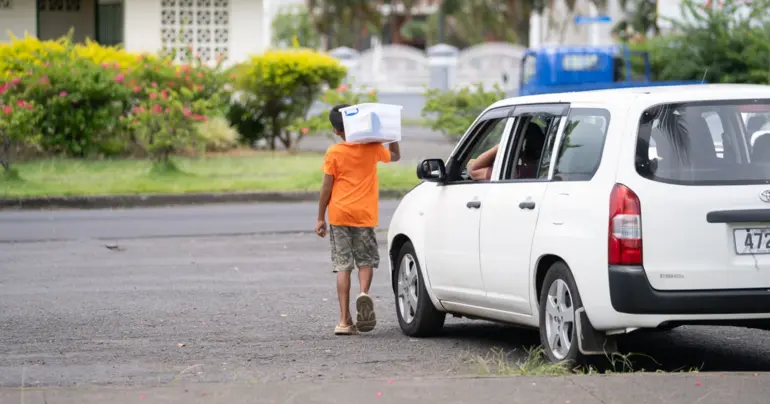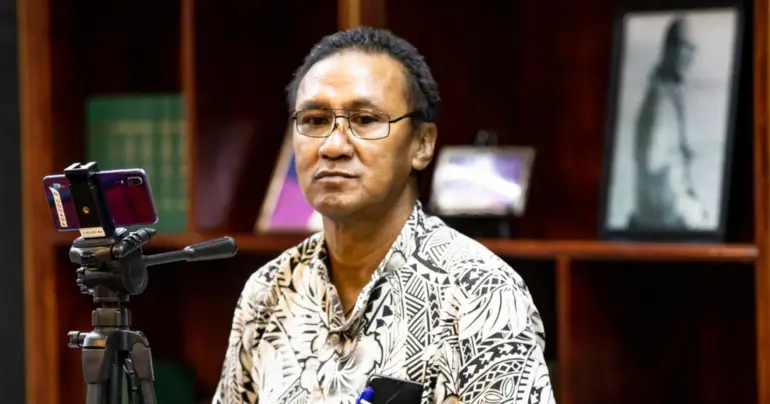Samoa’s renewables target a model for U.N.
Samoa’s goal of transitioning to 100 per cent renewable energy by 2025 was held up as an example this week at the United Nations' High-Level Dialogue on Energy on Friday.
Fiji's High Commissioner to Samoa, Aliioaiga Feturi Elisaia, said Samoa, with its ambitious renewable energy goal “wanted to make a statement.”
"You see, by design and by choice Samoa is a small island developing state on the frontline of the impacts of climate change...by choice and not by design Samoa wanted to be at the frontline in terms of being ambitious in shouldering its share of the global responsibility and be part of the solution,” said Aliioaiga.
“The small island developing states’ challenges in terms of vulnerability and in terms of being at the frontline of the impacts of climate change...for us, the time for apportioning blame is over.
"Charity starts at home and we have to put our own house in order first before we start lecturing to others on how to live their lives.”
He said that Samoa wants other Pacific states to follow its example.
The national renewable energy plan centres on solar power.
“Hopefully for us, if we are doing something right, some countries will try and follow our example. We want to utilise what nature has abundantly blessed Samoa with all year-round," Aliioaiga said .
"And that is sunlight, sunlight and still more sunlight. What does that mean? That is a priceless natural asset that we can bring to the negotiating table so that we don’t feel disadvantaged because too often we are always saying we are a small island developing state, we don’t have natural resources or we are at the mercy of, sometimes, whoever we negotiate with.
“But for us, we say there is plentiful supply of sunlight, we are ocean-locked – how can we utilise these natural resources so that is can benefit us and hopefully assist in terms of our contribution to being part of the solution to climate change? It’s a fact the small island developing states are at the frontline of the climate crisis so I think it’s imperative that we also lead by example.:
Samoa is currently running on 45 percent renewable energy relative to its 2025 goal.
In a partnership with GridMarket, an artificial intelligence and technology company based in New York City, Samoa is receiving help on how to use Government data to achieve its complete transition.
Nick Davis, the Chief Executive Officer and Founder of Grid Market said “at the end of the day it’s the will of the people and the political will in countries that gets things done.”
“When you look at a country like Samoa, the reality is the abundance of sunlight, the abundance of some of those core resources that can be used, the only constraint that you find is the size and scale that often blocks investors and outside capital markets from participating and really looking at it as a big opportunity to drive change,” said Mr. Davis.
“The purpose of our platform is really to look at every single parcel of land, every single property, every single network, every single piece of the utility, every element of electricity or transportation demand for energy and optimise that approach on a building-by-building, block-by-block, parcel-by -parcel, even bus-by-bus basis to optimise energy across an entire country.”
Mr. Davis said too many small and Non-Government Organisations were focused “on doing demonstration projects, on [transitioning to] a few hundred kilowatts at a school or doing a mini grid somewhere."
“If you look at places across the Pacific...you see graveyards of old systems and solutions that were left there and are unattended to,” he said.
Mr. Davis said that was caused by the absence of systems to make sure renewable energy equipment was operated correctly and maintained, he said.
“What we’ve found again is that if you really look at every single resource that a country has, you can create a much bigger and bigger and bigger opportunity that attracts external capital, it attracts the biggest investors, the biggest technology providers, those that are willing to invest in building capacity and making sure that utilities that manage and operate their own systems and really turning those small opportunities into big opportunities on the world stage,” said Mr. Davis.
While small projects are valuable he said “the time for pilot projects and the time for tests is over.”s.











